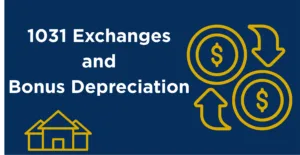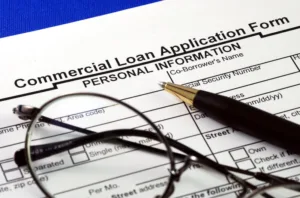Are off-market deals better?
I get asked this question a lot. Investors hear about off-market deals and wonder if they’re better than the properties being listed traditionally. Like most things in real estate, the answer is: it depends.
Off-market deals can come with real advantagese, but they’re not without drawbacks. Here’s what I’ve seen in my own experience, including the types of sellers you’ll run into and what to watch for along the way.
The Three Types of Off-Market Sellers
When you reach out to someone who hasn’t officially listed their property for sale, you’ll typically meet one of these three individuals.
1. The “Everything’s For Sale” Seller
This group says, “Sure, make me an offer.” They’re ont emotionally attached to the property and are always open to a sale – for the right price. But that price? Usually sky-high. You might have a nice conversation, but the numbers rarely make sense.
2. The Hard No
These are long-term owners who bought the property decades ago and have no plans to sell. In some cases, they’ll be annoyed that you even asked.
Every once in a while, someone in this group will say yes, though. That can feel like a win, but if someone is too eager to sell the property off-market and the price seems too good, take a step back.
You could be dealing with:
- A legal issue
- Hidden property problems
- A personal situation they’re not disclosing
Whatever it is, someone who is eager to sell at a great price is a red flag. Don’t move forward without digging deeper.
3. The “Not Yet, But Maybe” Seller
This is where most off-market deals come from. These owners are worn out – they’re tired of the maintenance and managing tenants, and they’re getting closer to calling it quits. But, they’re not ready to sell right away. If you stay in touch and build a good connection, they might be ready to sell to you in a few months or years. It’s a relationship game: patience can pay off big.
The Benefits of Off-Market Deals
So, why bother with off-market deals in the first place? They do come with a few clear upsides, mostly for the buyer:
Less Competition
You’re not going up against every buyer in the market, so there’s a better chance of striking a deal without the stress of a bidding war or competing offer situation.
Flexible Terms
Since you’re not likely to be stuck in a competing offer situation, and there’s less urgency, sellers are usually more open to negotiations around inspections, contingencies, and closing timelines.
Potentially Better Pricing
Some sellers just want a smooth transaction and aren’t focused on squeezing every last dollar out of the deal. That’s not always the case, but when it is, it can work in your favor.
The Drawbacks of Off-Market Deals
Off-market deals aren’t always a win. There are some clear downsides you need to be aware of.
It takes time.
Building trust and finding the right seller doesn’t happen overnight. Especially if you’re dealing with the “not yet” type, you could be looking at a process that lasts months – or even years. You or someone on your team will have to find time to check in and spend time in conversation with them occasionally.
You might need to educate the seller.
Some sellers haven’t been active in the market for a long time. They don’t know current expectations for documentation, inspections, or financing. You may have to explain things like what a cap rate is, why buyers expect updated financials, and how deferred maintenance affects value.
I once spoke with a seller who was going to sell his property on his own, off-market. I shared with him my experience of seeing insurance companies refuse to insure, or insure at an incredibly high number, buildings with outdated Zinsco electric panels. To my surprise, he was receptive and replaced the panels before selling. That outcome doesn’t always happen, but you’ll probably run into a few educational moments doing an off-market deal.
You can inherit a mess.
It’s not unusual to run into sellers who can’t locate leases, don’t have a rent roll, and haven’t tracked expenses. In these cases, you’ll likely have to:
- Rebuild the P&L from scratch
- Manually verify rental income
- Track down and organize missing documents
With listed properties, this is already handled. And if you’re working with a broker to source your new property, they usually step in to assist the seller with organizing everything. But if you’re going directly to the seller yourself, the job will fall on you.
Conclusion
So, are off-market deals actually better? Maybe.
Off-market deals offer less competition, more flexibility, and the chance for a smoother sale. However, they also require more effort and carry more risk. If you’re ready to play the long game and know what red flags to look out for, they could be worth pursuing. Just know what you’re stepping into before you pick up the phone.
If you’re looking for a new investment property, even if you’re planning to pursue off-market deals, having a broker on your side will help keep the process as smooth and painless as possible. If you’re looking in Pennsylvania or Maryland, contact our expert broker representatives to get started.





